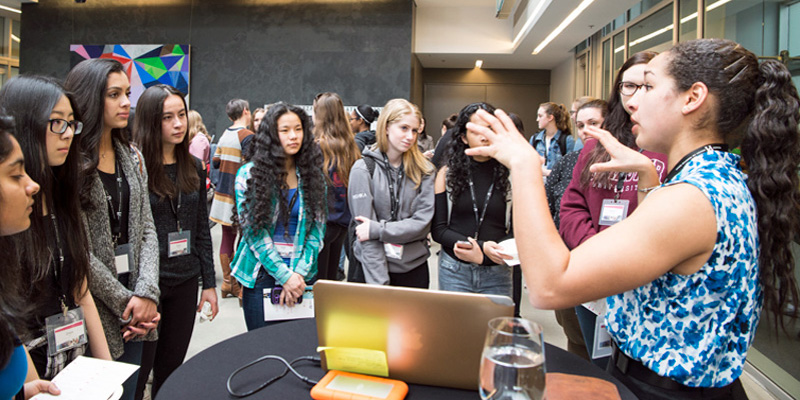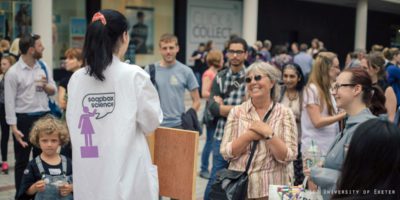Cylita Guy is a Ph.D. student in the Department of Ecology and Evolutionary Biology at the University of Toronto. Her research focuses on why bats seem to be good at carrying viruses that they sometimes share with humans, but rarely get sick from themselves. In her spare time, Cylita works to make science accessible to the public, working as a host at the Ontario Science Centre and presenting at science communication events across Toronto.
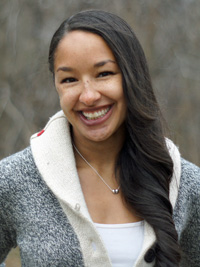
Cylita is taking part in Soapbox Science Toronto, which takes place on 23rd September 2018 between 12pm and 3pm at Word on the Street Festival, Harbourfront Centre, 235 Queens Quay West, Toronto. The title of her talk is: “Adventures of Your Friendly Neighbourhood Batgirl: Why you should care about bat science”
A career in science doesn’t have to follow a linear path
Sometimes people have this misconception that scientists always knew they would be scientists and that they took linear paths to get to where they are. Although that may apply to some, a linear trajectory is not something I’ve experienced.
I’m currently nearing the end of my Ph.D. in ecology. I study bats and their viruses using both fieldwork and computational approaches. Ultimately, I chose a graduate degree in ecology because I have a fascination with the diversity of organisms on this planet. It seemed natural to me that I should study this diversity during my undergraduate degree.
However, if you had asked me what I was going to do at the end of my science degree, I would have told you that research was the last thing on my mind. For a variety of reasons, I didn’t see myself becoming a scientist, let alone a scientist in ecology. In fact, my very first research project was in medieval studies!
In the third year of my degree though, I realised that I wasn’t going to be able to graduate unless I did a research project. So, in my last year of school, I did an honours thesis project in the field of conservation biology. Although I loved what I did, I learned that it’s often challenging to get people to care about conservation, but I did recognise that research was something that I could do and I liked to do.
As I applied to graduate school I began to realise that I wanted to work at an interface where people and animals came into conflict – infectious diseases originating in wildlife seemed like the perfect area to do that.
From office to Batcave..!
In my line of work, no two days are ever really the same! A lot of my time is actually spent coming into an office to read, write, or analyse data. Most of the time it feels like I’m working at a regular office job.
I break my time in the office up though by attending classes for courses I’m taking, teaching my undergraduate students, and working at my part time job at the Ontario Science Centre (which could mean delivering planetarium shows, running toddler workshops, or leading nature walks on any given day).
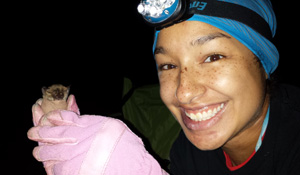
As a field biologist though, during the summer months what my days look like can change drastically. During the first two summers of my Ph.D. I was conducting an intensive field project. It had me out trapping and tagging bats nearly every single night (rainy ones included), sunset to sunrise, from June to early September.
Working with bats in the field was challenging because I had to be on their schedule. On any given night we’d be setting up our nets about an hour before sunset, collecting data into the night, and packing everything up come sunrise. I’d then nap for a few hours and get up to enter data or repair broken equipment. It was exhausting, but worth it for the amazing data we got!
Now that the fieldwork portion of my degree is done I spend most of my time these days trying to write up my science for publication in academic journals. Although it may not be as glamorous as catching bats, I do really enjoy seeing the sun on a regular basis.
Scientists are normal people too
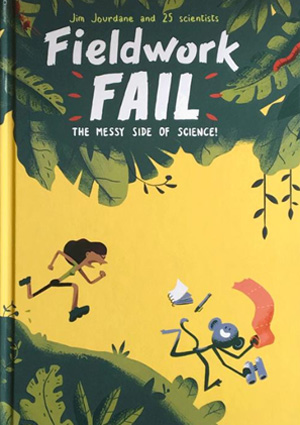
Fieldwork Fail presents comical fieldwork mistakes from 25 scientists from around the world, all illustrated by Jim Jourdane. Jim also gave each scientist the opportunity to explain, in plain language for the public, the goals of their research and share some fun facts about their study systems.
Participating in this project was so exciting for me because I love telling people about all the reasons for why bats are such amazing animals! Perhaps more importantly though, I think that books like this one are humanising. They show the general public that scientists are normal people, who sometimes make pretty ridiculous mistakes – and I think that’s pretty great.
I love my high heels as much as my hiking boots, and yet I’m still a scientist
I was forwarded the Soapbox Science application by a fellow science communicator and graduate student, Samantha Yammine. Sam is a former Soapbox Science presenter and is part of the Soapbox Toronto organising committee this year. Sam and I have run into each other at different science communication events around the city of Toronto. Sam encouraged me to apply and had great things to say about my style of engaging the public (which is always nice to hear!).
When she explained the scope of the event I quickly realised that it was the perfect forum for me to unite the passion I have for my own science and the desire I have to make that science accessible. Soapbox Science is a great way to share my work with the public in a fun and engaging manner.
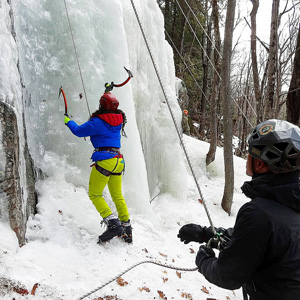
I also see it as a way to visually remind the public that scientists can be and are diverse people. I’m a woman, I’m half black, I’m a former competitive athlete, I climb mountains in my spare time, I’m a storyteller and science communicator. I love my high heels as much as my hiking boots, and yet I’m still a scientist. I think that challenging set stereotypes is important and Soapbox Science is another great way to showcase the diversity of people who participate in science.
Biodiversity science matters
My talk will be all about why bats are amazing, why we should study them, and why biodiversity science matters. In terms of how I plan to prepare, I won’t lie I haven’t thought that far ahead yet! However, I’ve given a number of presentations about bats to audiences of various backgrounds since I’ve started my Ph.D. I’m hoping to blend the most exciting elements together and maybe mix in some plushy giant viruses to help me get my point across.
Stepping out of my comfort zone
Doing science outreach has taught me that stepping out of your comfort zone, although difficult, gets easier and easier every time you do it. Stepping out of my comfort zone has also taught me that I can handle a lot under pressure, and it’s helped me to develop the confidence to be able to speak about some pretty diverse topics.
I find that having confidence in what I’m saying has helped me to succeed in a lot of other areas and situations. Things like job interviews, writing scholarship applications, and presenting at conferences. The skills I’ve developed while stepping out of my comfort zone really are invaluable.
Put yourself out there
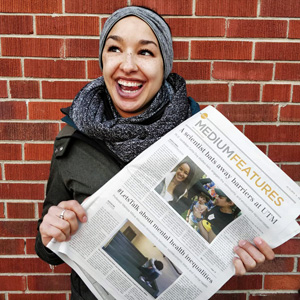
My advice for women and girls interested in science careers, but unsure of where to start? Put yourself out there! Social media, websites, and LinkedIn make us more connected than we’ve ever been.
I recommend finding someone who does the sorts of things you’re interested in and send them an email. Ask them what they do, how they got there, and if they have any advice for you. I find that the first-hand experiences of others can be really helpful for giving you possible ideas for places to start.
Up next
Up next is graduation! I’m hoping to defend my Ph.D. in the next year to year and a half. In the meantime, I working to get some of the projects I’ve completed published in academic journals. As for my plans after my Ph.D., who knows? Although the idea of continuing in academia is appealing, I’m also interested in careers in data science and science communication.
http://soapboxscience.org/soapbox-science-2018-toronto/
https://www.instagram.com/cylitaguy

